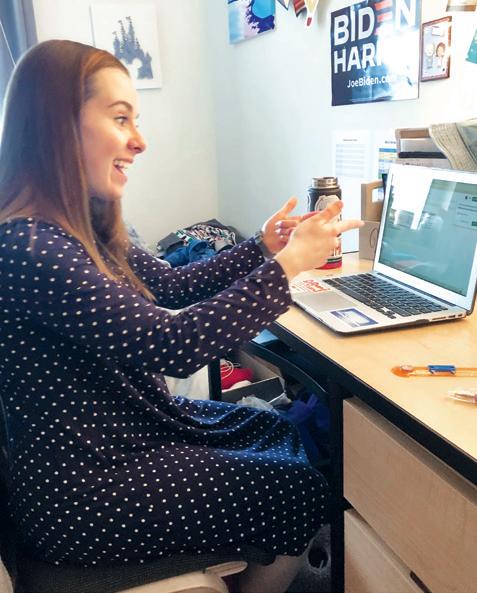
8 minute read
STUDENTS
Learning How to Teach in a Pandemic
BY HOLLY LEBER SIMMONS
Learning, and teaching, in the throes of a pandemic have brought about unimagined challenges. For the students of the UMD College of Education who are learning to teach, school in the time of coronavirus has brought about particular challenges and learning experiences. Yet, several recent graduates say this time has taught them lessons in the value of compassion and connection in education.
“Even though building connections with students is much harder across the screen than if you’re face-to-face, I think it really helped me to grow in confidence,” said Kieran O’Connor, B.S. ’21. “If I was able to make the genuine connection with them on screen, I’m pretty confident that I’ll able to do it in person.”
O’Connor will be teaching 8th grade math and algebra I in Anne Arundel County Middle School, where she was once a student. “It’s a nice full circle moment.”
While personal experiences with the pandemic were individual, living through it was not unique to anyone. The “we’re all in this together” mentality helped Lekha Tantry B.S. ’20, M.Ed. ’21 access what she called the vulnerable part of her teaching persona.
“I know a lot of teachers who think being able to teach content well is enough. It’s not enough to go into teaching because you like the subject,” she said. “If your students don’t respect you and you aren’t able to connect with the students, don’t do it. Being vulnerable is probably the most important aspect of building that rapport with students.”
Tantry took the opportunity presented by the pandemic to reexamine her teaching style.
“There’s a very bare minimum for being a good teacher right now—students are not used to being told, ‘I care about you’ by their teachers. I need to explicitly state those things to my students.”
She discarded what she viewed as “outdated” advice like to not smile or be extra strict so her students don’t take advantage of her, especially as a young teacher. She asked their favorite music, their favorite restaurants, and strove for connection.
“This year was all about building relationships.”
The transition to a remote learning and teaching environment took some adjustment for Jessica Parker, B.S. ’21. While Parker had been looking forward to being at the head of the classroom, she tried to look on the bright side.
“It made me more adaptable and flexible. We all had this plan and all that changed. Either you can be upset that your plans changed or you can learn how to roll with it and learn a new skill.”
Parker and O’Connor both taught fully virtually, while Tantry began virtually and then transferred to a hybrid setting with a handful of kids in the classroom at a time.
As both students and teachers, they had to get accustomed to both learning and teaching online.
KIERAN O’CONNOR
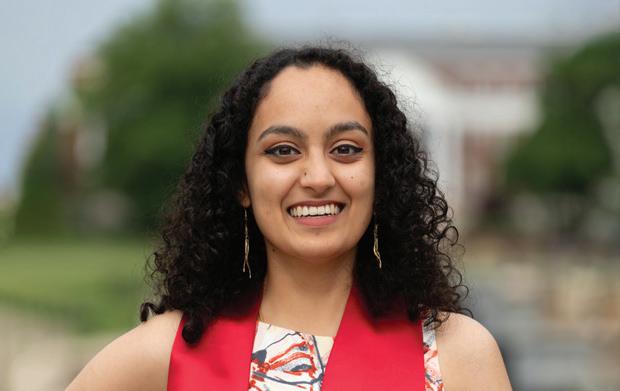
“We got to learn a lot with our professors,” said O’Connor. “They were very open knowing we were education majors. They told us their thought processes through different activities that we were doing online, and I think that that helped us … when we transitioned in [our] full time teaching positions.”
The biggest challenge of remote teaching, O’Connor joked, wasn’t hers but her roommates’.
“They heard me give the same lessons four times a day from my bedroom. They are definitely up to date on middle school math curriculum.”
But jokes aside, all three said remaining motivated in a time of isolation wasn’t easy.
“Zoom fatigue definitely was a thing,” said Parker, who will complete a one-year masters program in special education before pursuing a teaching position for 2022. “Between in-person classes you walk outside, you get a little mind-break.”
At times, O’Connor found the experience of all online teaching and learning emotionally and physically draining.
“The motivation was definitely the most challenging for me personally,” O’Connor said.
“I wouldn’t want to do remote learning again,” said Tantry. “I sat in my bed and did all my classes and work. That’s just not balance. But I know students who benefited from virtual learning, and I also know a lot who didn’t thrive in that setting. I do wonder if some of the students I connected with in chat are people I would have connected with in person.”
Indeed, connection was key. Having already established relationships with their respective cohorts made the transition to online learning easier.
“I really love the community that College of Education brings,” said O’Connor. “It’s definitely not what any of us had in mind, but I think in some ways, it brought our cohort closer together.”
Both Parker and Tantry said they appreciated the opportunity to learn more about online teaching tools and how technology can enhance education.
“I saw the things tech can do to enhance mathematical learning,” said Tantry. “I wouldn’t have branched into that aspect of the pedagogy [otherwise].”
Still, the greatest lesson of the past year was one of compassion, and it helped show each of the women what kinds of teachers they want to be.
“One that I said to my students is, ‘There are going to be days where math is not an important thing. And that’s totally okay, but I need you to tell me,’” O’Connor said. “That was a huge conversation that shifted my entire perspective on why I was really there. Because I love math, but what I care more about is my students, and their wellbeing and their learning. And if their [lack of] wellbeing is getting in the way of their learning, I want to be a resource for them, so that we can talk through those issues, make sure that they are okay—then we can dive a little bit more into the curriculum.”
LEKHA TANTRY
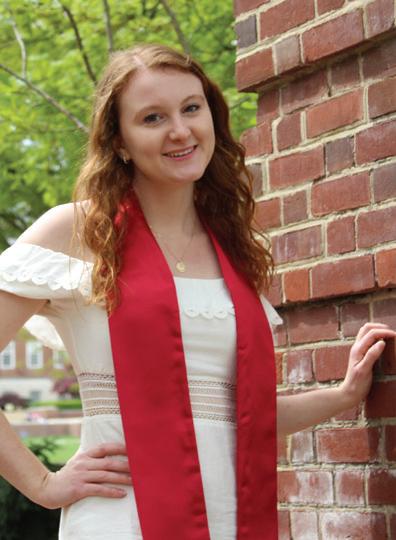
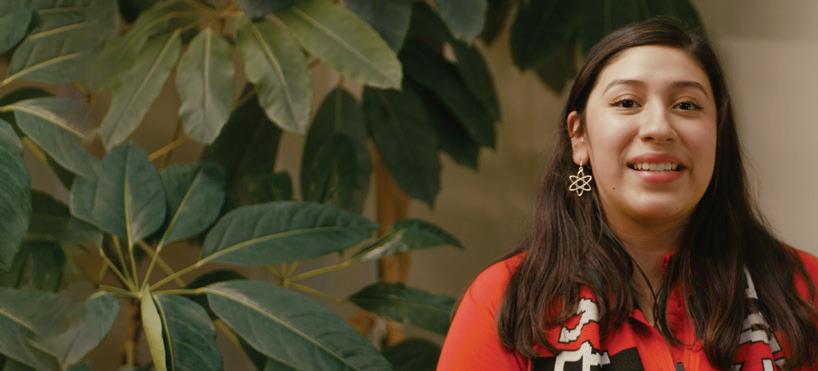
BY LAUREN BENNING-WILLIAMS
A career in education gives you an opportunity
to make a difference in the lives of people around the globe. Not only will students make a big impact, a career in education is one in which anything is possible and every day is different.
The University of Maryland College of Education (COE) is fearlessly leading efforts to transform educational contexts and learning experiences. Students are prepared to be the next generation of scholars, educators, and leaders. COE faculty, students, and staff share the mission of creating a better society by using education as a platform.
As part of one of the largest public universities in the country, COE offers a variety of nationally ranked undergraduate and graduate programs. And, although COE is nestled within a large institution, COE students get the hands-on approach of a small community with the benefits and resources that come with enrolling in globally recognized programs.
Situated only minutes from the nation’s capital, COE students have access to robust libraries and unparalleled research and fellowship opportunities. COE’s world-renowned faculty experts will prepare students to tackle the world’s most pressing issues, and its technology- rich spaces will help facilitate collaborative work environments to empower students’ education.
Laura Torres
LAURA TORRES IS AN UNDERGRADUATE STUDENT IN THE DEPARTMENT OF TEACHING AND LEARNING, POLICY AND LEADERSHIP. TORRES IS AN ELEMENTARY EDUCATION MAJOR.
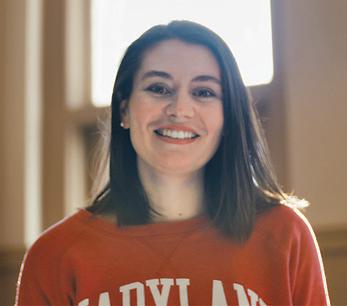
Kayla Bill
KAYLA BILL IS A DOCTORAL STUDENT IN THE DEPARTMENT OF TEACHING AND LEARNING, POLICY AND LEADERSHIP. BILL IS AN EDUCATION POLICY MAJOR.
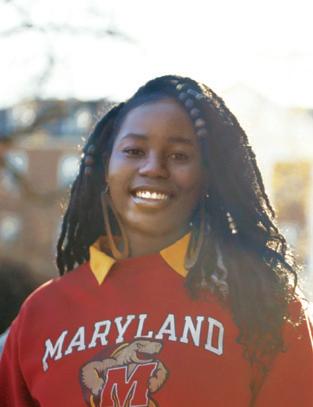
Wilkins Njinguet
WILKINS NJINGUET IS A GRADUATE STUDENT IN THE DEPARTMENT OF TEACHING AND LEARNING, POLICY AND LEADERSHIP. NJINGUET IS ENROLLED IN THE CURRICULUM AND INSTRUCTION WITH CERTIFICATION (MCERT) PROGRAM.
“I believe that people should pursue a career in education because it’s so important. I believe that preparing our youth can help address all the issues that we see in our society today. I am committed to helping bridge the gap that exists in the preparation of a diverse group of students in STEM and that’s the reason why I’m pursuing a career in education.”
Sarah Cooper
SARAH COOPER IS AN UNDERGRADUATE STUDENT IN THE DEPARTMENT OF COUNSELING, HIGHER EDUCATION AND SPECIAL EDUCATION. COOPER IS A SPECIAL EDUCATION MAJOR.
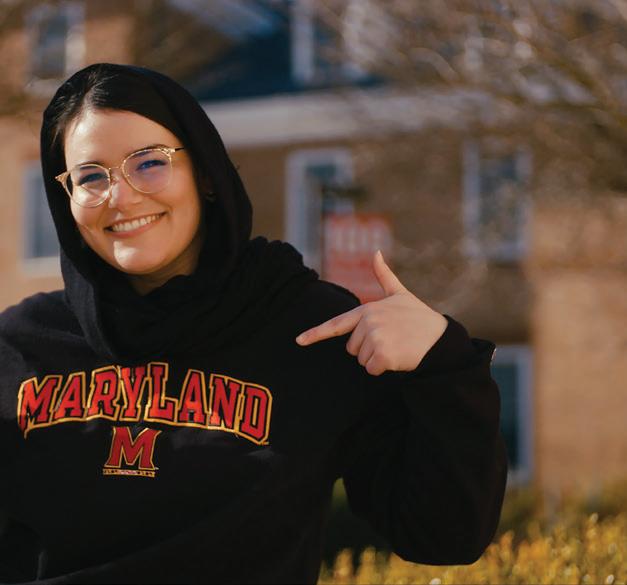
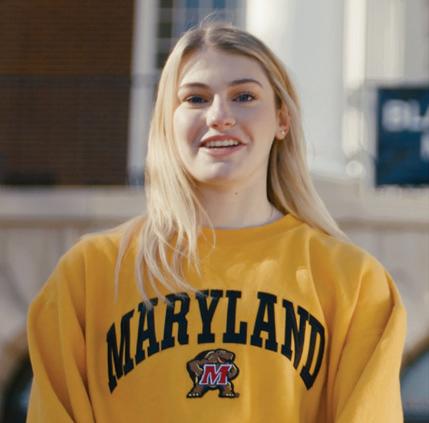
Jannah Fusenig
JANNAH FUSENIG IS A DOCTORAL STUDENT IN THE DEPARTMENT OF HUMAN DEVELOPMENT AND QUANTITATIVE METHODOLOGY. FUSENING IS AN EDUCATIONAL PSYCHOLOGY MAJOR.










